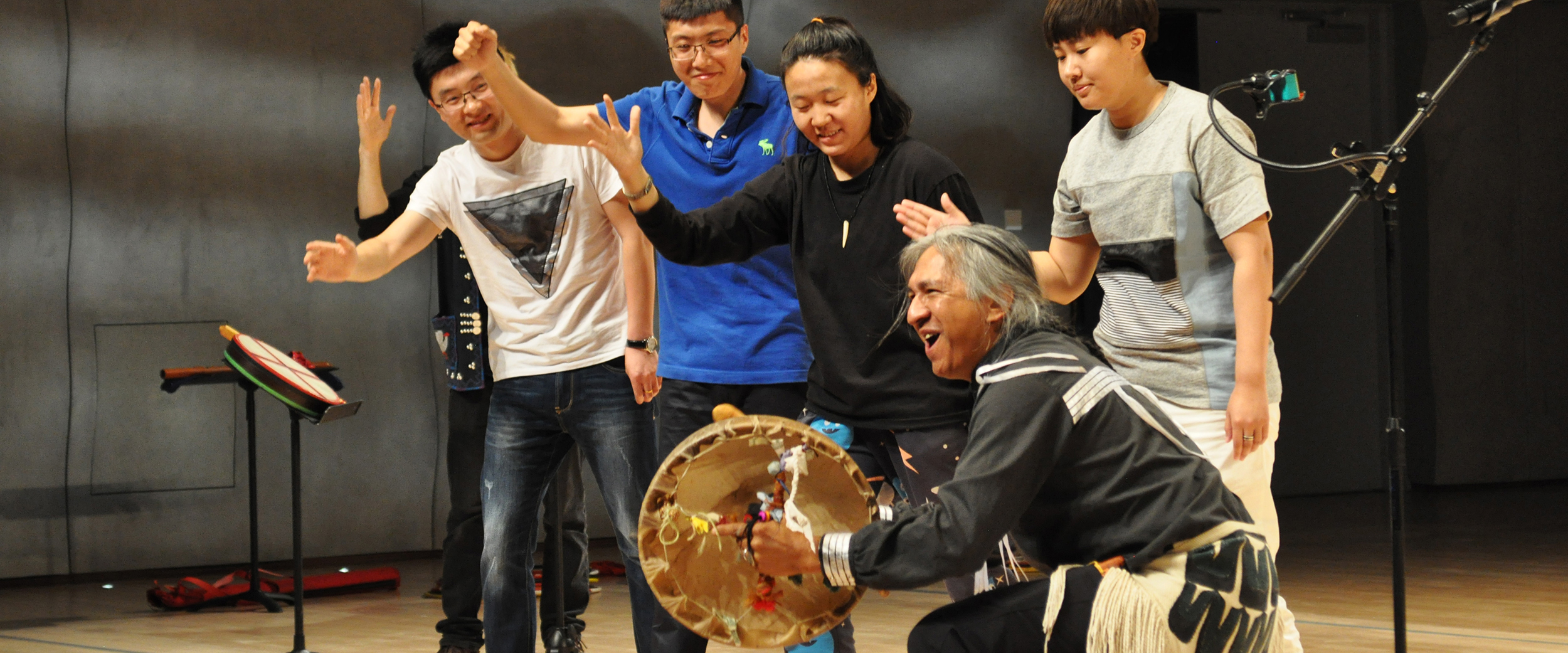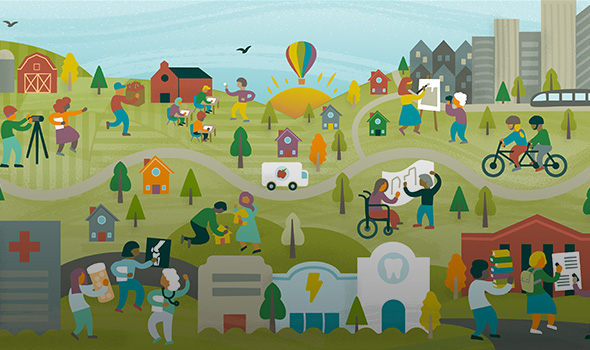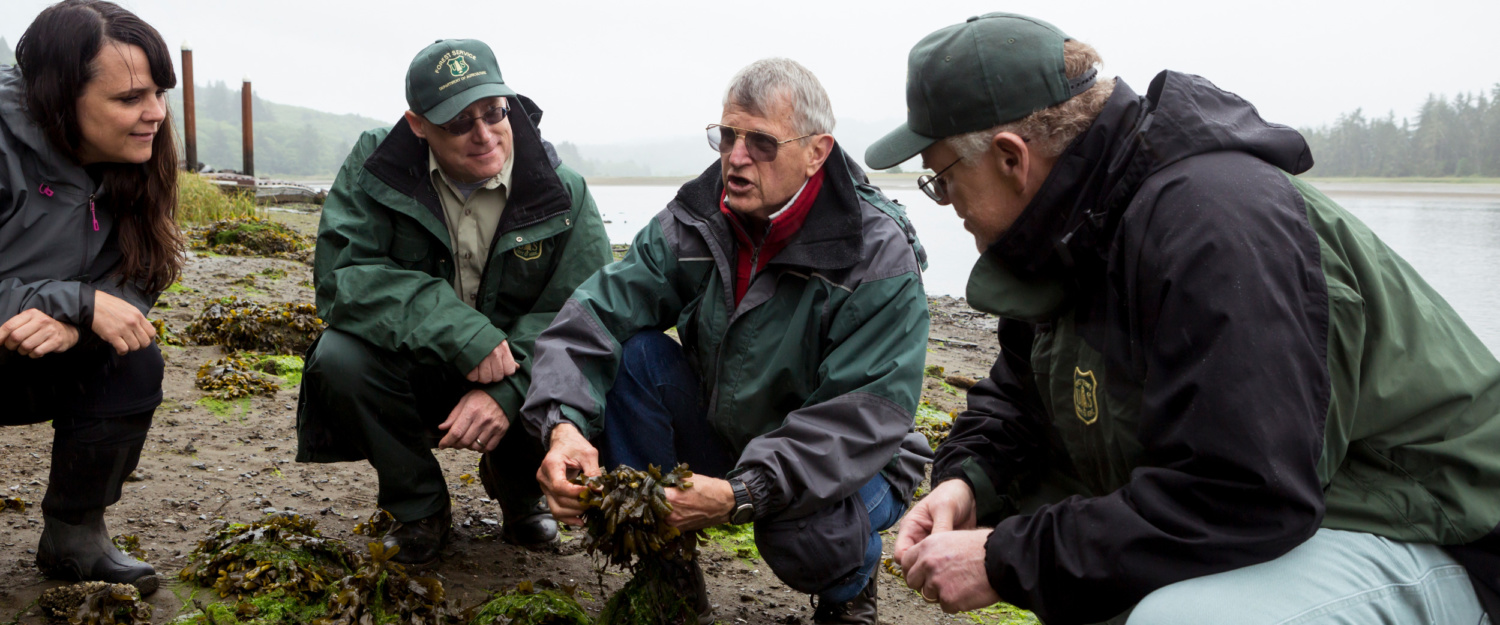
Well-being for All People: An Overview
Countries with higher levels of well-being (e.g., subjective indicators such as greater optimism) are healthier, more connected, more productive and have growth that is sustainable—creating opportunities for more people. But an emphasis on well-being has not been the focus of core U.S. data, policies or budgets. Instead, “progress” has been mostly defined around economic growth and consumption.
That has contributed to ongoing deep inequities and system failures, making it clear that we need a seismic shift: As a nation, we must set holistic human and planetary well-being as our definition of progress, placing that goal at the heart of decision-making.
Well-being in this context means that every person has what they need to thrive and to create meaningful futures in every aspect of life. It includes people’s physical, mental and social health, as well as basic needs like food, housing, education, employment and income. It includes social and emotional needs, like a sense of purpose, safety, belonging, social connection and life satisfaction. And it is tightly linked with the well-being of our communities, our environment and our planet.
Leaders in social justice, public health, environmental sustainability, economic equity and many other fields from around the globe have been exploring well-being approaches to their work—from what we define as “progress” and how we measure it, to how we prioritize resources, to who drives policy choices.
We are especially committed to the power of narrative change in fueling a shift to a well-being approach. Like many other countries around the world, our dominant narrative about progress and power in the U.S. is firmly rooted in wealth, consumption and competition. The strength of our economy is viewed as the strength of our country. This has fostered a “zero-sum,” individualistic way of thinking, with a belief that wealth and resources are something to be hoarded (not shared). If someone is thriving, the narrative goes, it must be coming at some cost to someone else.
There is a tremendous opportunity to collectively counter that narrative—guided by grassroots movements that already hold well-being narratives, knowledge, wisdom and capital—and advance a new narrative centered on well-being. As that narrative takes hold, the ground becomes more fertile for nearly every social movement. Individuals and communities begin to envision, expect and demand an alternate future marked by hope, connection, collective healing, opportunity and equity.
We have been fortunate to work on the following projects as part of our exploration into advancing well-being approaches and narratives. We offer them here with the invitation to take this work forward at local, state and national levels.
- Advancing a Well-Being Narrative – A well-being narrative guide, developed with the RAND Corporation, that presents insights and initial recommendations for narrative change. Findings are based on collaboration with grassroots organizations and well-being practitioners, as well as testing with business leaders and policy influencers, to develop and test a well-being narrative. Developed with RAND Corporation with funding from Robert Wood Johnson Foundation.
- How Cities Can Redefine Progress Toward Equity for Well-Being – A National League of Cities message guide for cities interested in putting equity at the core of their decision-making, making the case for holistic data to inform policies and budgets centered in well-being.
- What if Progress Meant Well-Being for all? – An exploratory report, developed with the RAND Corporation, on how narratives are playing a role in helping decision-makers broaden their definition of progress to center on well-being, with insights from England, Mexico and New Zealand, and initial application in the U.S. Developed with RAND Corporation with funding from Robert Wood Johnson Foundation.
- Setting Well-Being as the North Star Webinar – An online convening of creative thinkers to explore what it would mean to take a well-being approach. Panelists included:
- Mindy Fullilove – professor of urban policy and health at The New School and author of Main Street
- Alonzo Plough – chief science officer and VP of Research, Evaluation and Learning at Robert Wood Johnson Foundation
- Julie Rusk – founder of Civic Wellbeing Partners and architect of the City of Santa Monica’s award-winning well-being approach
- Jennifer Messenger – senior executive VP at Metropolitan Group
- Well-Being: Expanding the Definition of Progress – A Robert Wood Johnson Foundation and Oxford Press book that shares an analysis and discussion from a group of leading practitioners, researchers and innovators from 19 countries—along with scientific papers and case studies from Bhutan, New Zealand, Nova Scotia, Palestine, Singapore and the U.K.
A summary of the convening can be found here: Setting Well-Being as our North Star | by Metropolitan Group
We are excited about the potential of well-being narratives and approaches. If you would like to discuss this work and the opportunities ahead, please contact Jennifer Messenger, publichealth@metgroup.com.


